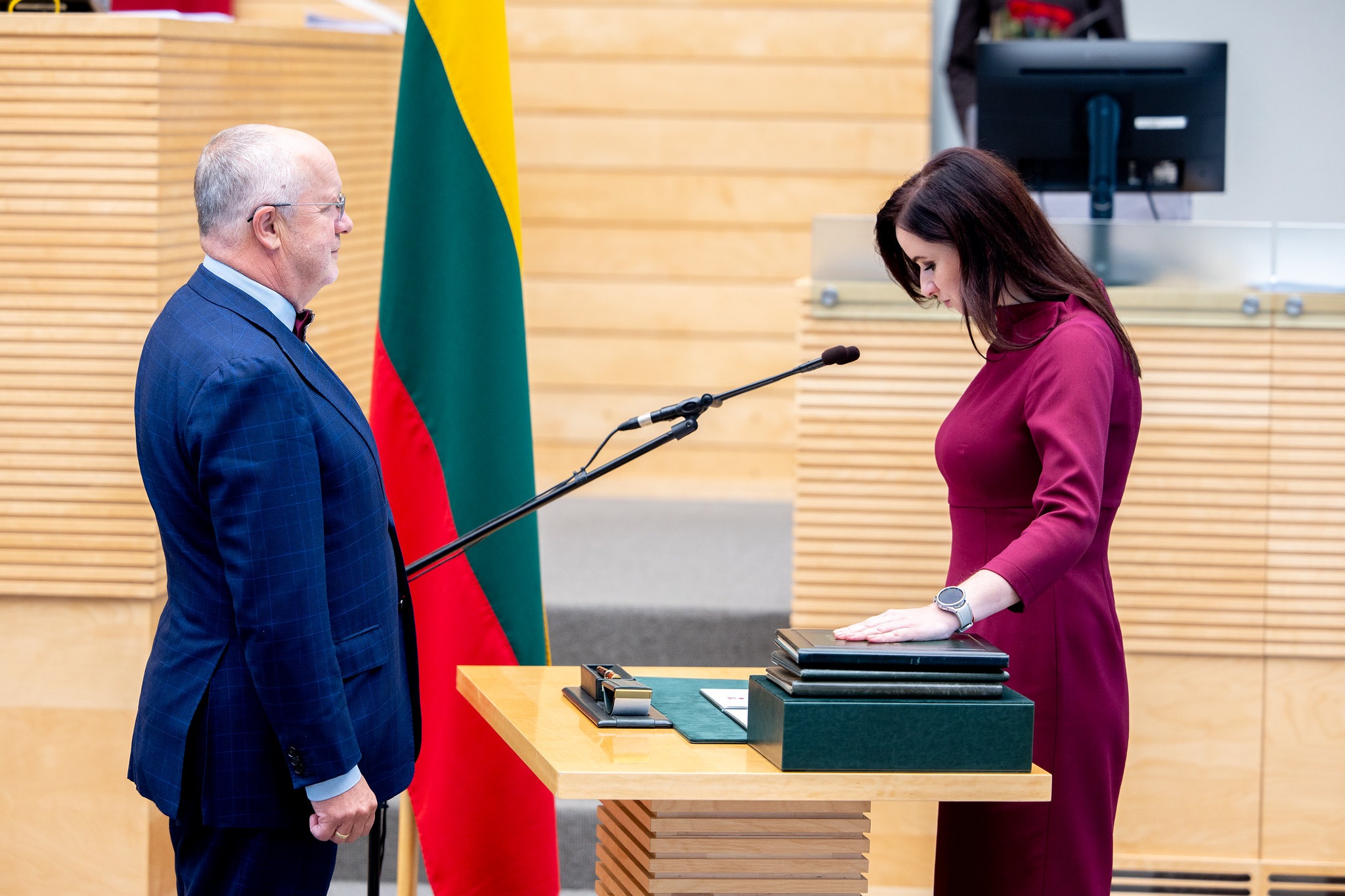
“Latvia is failing, the West is evil, Russians are victims” – these are the most popular narratives in Russian language social media accounts targeting Latvia. Despite Russia’s media bans, problematic messaging thrives on Facebook and Telegram, continuing to shape perceptions among Latvia’s Russian-speaking population.
When Latvia banned Russian TV channels and online news portals in response to Russia’s full-scale invasion of Ukraine, the move was hailed as a major step toward information sovereignty. However, the report “Echoes from the Kremlin: New Platforms, Old Narratives” reveals that problematic narratives as well as Kremlin-aligned disinformation are alive and well on social media. Analysis of the top-performing posts across six major Russian-language Facebook and Telegram channels active in Latvia reveals four dominant narratives: Russophobia, Economic Hardships, the Failed State, and the Bad West.
These narratives aren’t about converting masses to Russia’s worldview. They’re about reaffirming deeply rooted identities, frustrations, and resentments of the Russian-speaking community in Latvia. These are narratives that Russia and a wide network of Kremlin-aligned actors have cultivated over decades in Latvia. Together, they construct a worldview in which Latvia is portrayed as a collapsing, conflict-ridden society aligned with a hypocritical and aggressive West, while Russia and the Russian-speaking community in Latvia emerge as the misunderstood victim.
Russophobia: Cherry-picking Cases of Ethnic Tensions
The most prominent and emotionally resonant narrative across all six monitored platforms is Russophobia. This narrative presents Latvia as systematically hostile toward Russian speakers, culture, and language. While there is made-up disinformation among monitored posts, most are built on real events, selectively framed to inflame fear, resentment, and ethnic division. However, while these posts mostly report real incidents of linguistic tension or ethnolinguistic discrimination, they often do so in a one-sided, sensationalist manner with the goal of portraying Latvian society as inherently hostile to Russophones and making the reader feel like a persecuted minority.
Three sub-narratives dominate here:
- Latvians Harass Russian Speakers: Depicts everyday discrimination through anecdotal incidents of mistreatment, fostering a perception of deepening ethnolinguistic tensions.
- Government Discriminates Against Russophones: Frames government policies toward the Russophone community as systematic and deliberate discrimination.
- Persecution of Russian Speakers: The most extreme variant employs emotionally charged language, exaggerations, and fabrications to portray Latvian authorities and nationalists as actively seeking to eradicate the Russian language, culture, and people from Latvia.
Economic Hardships: Amplifying Real Struggles, Blaming the State
The second major narrative taps into economic frustration, especially related to the high inflation. Latvia’s poorest regions, particularly Latgale, have struggled with stagnation and low salaries. These are also often real issues that affect the Russian-speaking community. Many of these stories are grounded in truth, but by omitting broader economic context or comparison, they create the impression that Latvia is uniquely failing – and that its government is actively complicit.
Most repeated narratives:
- Rising Cost of Living: Highlights inflation in everyday goods and services while emphasizing inadequate salaries and pensions, generating frustration and dissatisfaction.
- Economic Decline: Presents Latvia as experiencing widespread economic deterioration through selective examples of business closures and decaying infrastructure.
- Government Economic Mismanagement: Frames Latvia as in economic decline and attributes economic problems to government mismanagement, combining two master-narratives.
Failed State: Delegitimizing Latvia’s Institutions
Closely tied to the economic narrative is the portrayal of Latvia as a Failed State. This narrative paints the country’s government as not only incompetent but illegitimate, corrupt, and incapable of governance. This narrative serves a dual purpose: it erodes public trust in democratic institutions while elevating populist and Kremlin’s alternatives who claim to speak for the marginalized. The tone is not just critical – it’s fatalistic. Even positive news is often met with ridicule in the comments, showing how deeply entrenched these negative expectations are.
Popular sub-themes include:
- Incompetent Government: Portrays Latvia’s government as incapable of solving real problems, mocking leadership figures, highlighting policy failures, and infrastructure issues to paint a picture of systemic dysfunction and collapse.
- Government Economic Mismanagement: Frames Latvia as in economic decline and attributes economic problems to government mismanagement,t combining two master-narratives.
- Corrupt and Self-Serving Government: Depicts a divide between “the people” and corrupt political elites who enrich themselves at the expense of ordinary citizens.
The Bad West: Demonizing the U.S., NATO, and the EU
The fourth dominant narrative shifts the lens outward, attacking the legitimacy of Latvia’s Western alliances. On Telegram channels Baltnews and Antifascists of Pribaltics, this content often mirrors Russian state propaganda.
Three contradictory but mutually reinforcing frames emerge:
- Aggressive West: Portrays NATO, the US, and EU as irrational, Russophobic aggressors preparing for war against Russia, using Ukraine and the Baltic states as proxies.
- Hypocritical West: Highlights alleged contradictions between stated Western values and actions, portraying Western powers as morally inconsistent and undemocratic.
- Weak West: Depicts Western powers and international organizations as declining in influence and effectiveness, militarily insufficient, and unable to address global challenges
There is a clear contradiction within this messaging, which portrays the West as both an aggressive, expansionist threat and a weak, decaying force in global affairs. Nevertheless, all of these narratives serve a unified purpose: to portray the West in a consistently negative light.\
What does this mean for combating Russia’s influence?
None of these narratives is new. These are the same frames Russia has been pushing since the 1990s, even the Soviet era. In fact, their strength lies in their familiarity, not ingenuity. These are deeply embedded values, attitudes, and beliefs within the Russophone community that these narratives tap into. Repetition is what makes it effective. Simplistic fact-checking and one-off media literacy interventions are relatively powerless against decades of systematic formation of worldviews. What’s changed is the platform. As traditional Russian media have been banned, social networks have filled the gap.
However, the Kremlin’s propaganda machine is not innovative – it’s stuck. The same four master narratives are recycled endlessly. Monitored outlets rely on decades-old, deeply embedded stories, not new, innovative, or unique manipulation methods. Their structure is predictable, and their rhetorical devices are familiar. Russia’s propaganda machine is running well because of its decades-long investment in the Russian speaking audience, instead of unique and new methods. They are preaching to the converted, not converting the undecided. This is not what winning the information war looks like.
Furthermore, not all of this messaging comes directly from Russia. While Baltnews and Antifascists of Pribaltics have clear links with the Kremlin’s propaganda machinery, channels like Roslikov, Baltijas Balss, and Press use similar narratives for domestic political and/or economic gain. These stories are used because they benefit local populist politicians and media supporting these politicians, or simply allow local media outlets to make money by tapping into what a significant segment of the Russophone audience believes in.
Getting ahead of these narratives is an extremely difficult task. Most popular narratives exploit genuine and unresolved domestic grievances among Latvia’s Russian-speaking population. The Latvian state has a trust gap with its Russophone minority, and others – Russia, populists, or radical influencers – are filling it. Where public trust in state institutions, socioeconomic equity, or ethnic cohesion is weak, narratives of Russophobia, state failure, and economic decline flourish organically – with or even without foreign coordination. The focus only on “information” in the so-called “information war” is misleading. The winning strategy would focus on addressing deeply rooted domestic political and socioeconomical vulnerabilities that enable Russia’s propaganda’s success.
The full report “Echoes from the Kremlin” by Dr. Mārtiņš Hiršs is available here.









